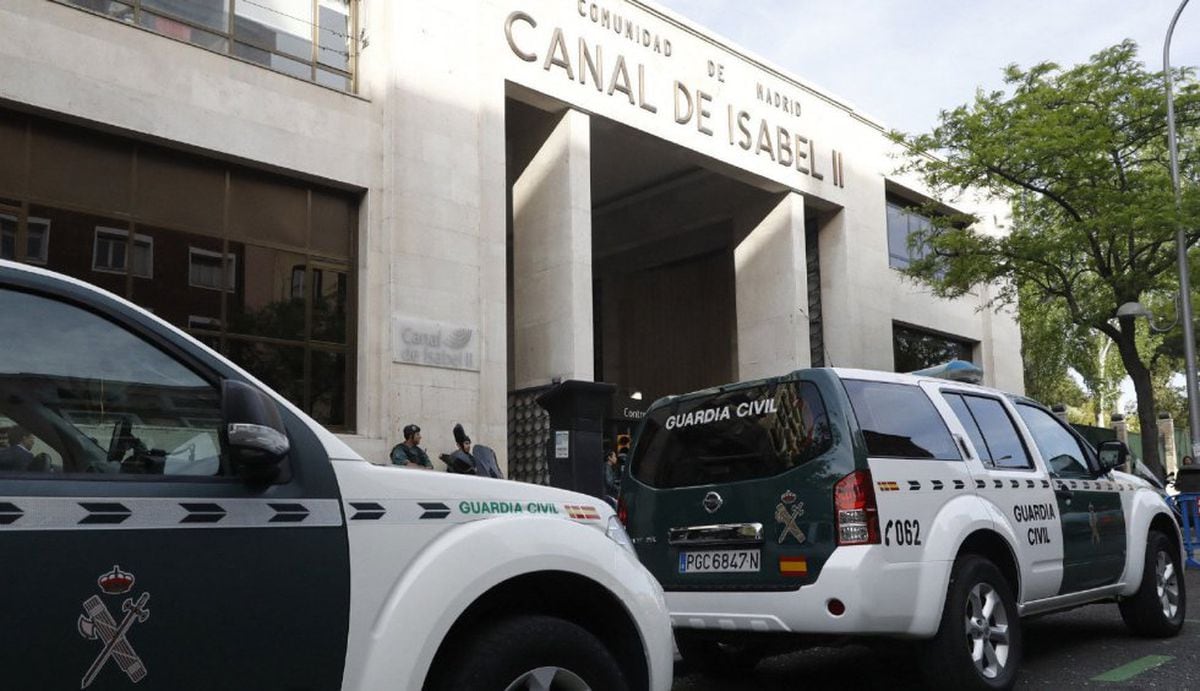Canal de Isabel II has complied with its threat and has taken the step of formally suing Colombia for the expropriation of its subsidiary in the country Triple A. The Madrid public company, through its subsidiary Canal Extensia, has requested arbitration before the International Center for the Settlement of Investment Disputes, ICSID, an agency dependent on the World Bank based in Washington.
Triple A, which provides water and sewerage services to Barranquilla and other Colombian municipalities, was expropriated after seeing the international activity of Canal de Isabel II splashed in a corruption and commission scheme.
The Colombian Prosecutor's Office decided to seize without compensation the participation of the Channel, through the company Inassa (subsidiary of Canal Extensia), in Triple A (82% of the shares).
After the diplomatic channel failed, the Canal warned that it would resort to international arbitration.
The request was formally registered with ICSID last Friday, according to the agency's website.
Canal de Isabel II has resorted to the services of the Spanish law firm Uría Menéndez and its Colombian partner Philippi Prietocarrizosa Ferrero DU & Uría.
Colombia is represented by the National Legal Defense Agency of the State.
The Spanish public company created Canal Extensia in December 2001, which acquired the majority shareholding of the Colombian Inassa (Sociedad Interamericana de Aguas y Servicios SA) for around 100 million euros.
The Canal de Isabel II thus began its expansion throughout Latin America, which was later the subject of investigation since 2016 in the
Lezo case
for the payment of bribes and commissions in the internationalization of the public company.
It was the case that led to the arrest of the former president of the Community of Madrid Ignacio González.
The Colombian Prosecutor's Office opened a parallel investigation that same year based on indications that Inassa has been charging for advisory services that might not have been performed.
Since 2000, Inassa had collected more than 60 million euros for these works through the Triple A company. The Attorney General's Office first suspended the contract and in 2018 applied a domain forfeiture process that finally led to the fact that, in 2021 , 82.16% of the capital of the Barranquilla public services company was definitively expropriated from Canal de Isabel II and sold to Colombian businessmen.
The Government of Iván Duque applied a law designed against paramilitaries and drug traffickers to the expropriation and sale of Triple A shares, according to the Spanish complaint.
Duque presented the seizure of the shares of the Spanish public company as a great achievement.
He supposed, as he said, returning to the city and to Colombia itself a large local company that was in foreign hands.
"What we want is for Triple A to return to Barranquilla to become a treasure and to take care of itself like a treasure, with complete fiduciary independence from any political interference," he said, although part of the company's shares were later delivered. to Colombian businessmen.
Diplomatic and negotiating efforts have failed for the moment and the Canal has filed an arbitration claim with ICSID, alleging that the bilateral agreement for the protection of foreign investments signed by Spain and Colombia in 2005 has been breached.
The processes before the ICSID are long and complex and their processing extends for years.
Once the arbitration request is registered, each of the parties must propose an arbitrator and the third is chosen by mutual agreement.
In cases of expropriation, companies often claim compensation.
The presentation of the demand does not close the possibility of a negotiation.

